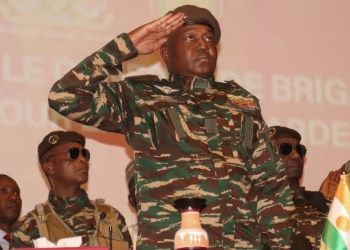Details have emerged explaining why some prominent political figures missed out on state jobs despite signing pre-election agreements with President William Ruto’s Kenya Kwanza Coalition. Among those affected are former governors William Kabogo and Martin Wambora.
It has come to light that the agreements signed by Kabogo’s Tujibebe Wakenya Party and Wambora’s Devolution Party of Kenya were flawed, resulting in their exclusion despite the coalition’s electoral victory. The coalition deals, revealed that the parties failed to negotiate specific positions in the national government. Instead, they agreed that their allocations would depend on their electoral performance in the August 2022 elections.
“Following the outcome of the General Election on August 9, 2022, Jibebe will be allocated a share of appointive positions within the national government…” states the agreement signed by Tujibebe Wakenya. “This allocation will be based on the number of County Assembly, National Assembly, Senate members, and governors elected on the Jibebe ticket, as well as Jibebe’s overall contribution to the presidential campaign.”
Wambora’s Devolution Party signed a similar agreement. Unlike former CS Moses Kuria’s Chama Cha Kazi and Public Service CS Justin Muturi’s Democratic Party, whose candidates won seats and thus secured significant national government positions, Kabogo and Wambora’s parties performed poorly in the elections.
Despite the underperformance, key documents recently surfaced revealing how various parties agreed to share important government positions and outlining key projects and initiatives Ruto planned for different regions based on these agreements.
These revelations come as Deputy President Rigathi Gachagua referenced the pre-election deals to support his claim of “shareholding,” which is now central to his impeachment case. Gachagua stated that regions negotiated with the President for their share of power and that leaders from the coalition sought their share of the Kenya Kwanza resources.
“I’ve never mentioned resource sharing; I’ve focused on power sharing, ensuring people receive their rightful share according to this agreement,” Gachagua said.
In the agreement with Musalia Mudavadi’s ANC, a position of Prime Cabinet Secretary was reserved for the party, set to be created within 14 days of Ruto’s inauguration. The President was responsible for defining the functions of the PCS through an Executive Order, which included coordinating national government functions and overseeing the implementation of government policies and programs.
The coalition also agreed to introduce legislation within 30 days post-election to clarify the role of the PCS. Ford Kenya was tasked with nominating the Speaker of the National Assembly, while ANC and Ford Kenya secured 30% of positions in the national government, including cabinet secretaries, principal secretaries, and chairpersons of state corporations.
The parties also committed to completing stalled road projects in western Kenya, constructing new bitumen roads, and revitalizing local sugar factories. Agreements were made to establish various projects and initiatives in the region.
For Speaker Amason Kingi’s Pamoja African Alliance Party, the coalition also reserved the position of Senate Speaker and one principal secretary role. They agreed that Ruto would restore port operations to Mombasa from the inland depots and take necessary legislative actions within a year of his presidency.
Moreover, the coalition pledged to implement reforms to ensure that the port of Lamu benefits local communities economically and to revive industries like cashew nuts and coconut in coastal areas. They also committed to addressing historical land injustices at the Coast, including establishing a land compensation fund.















